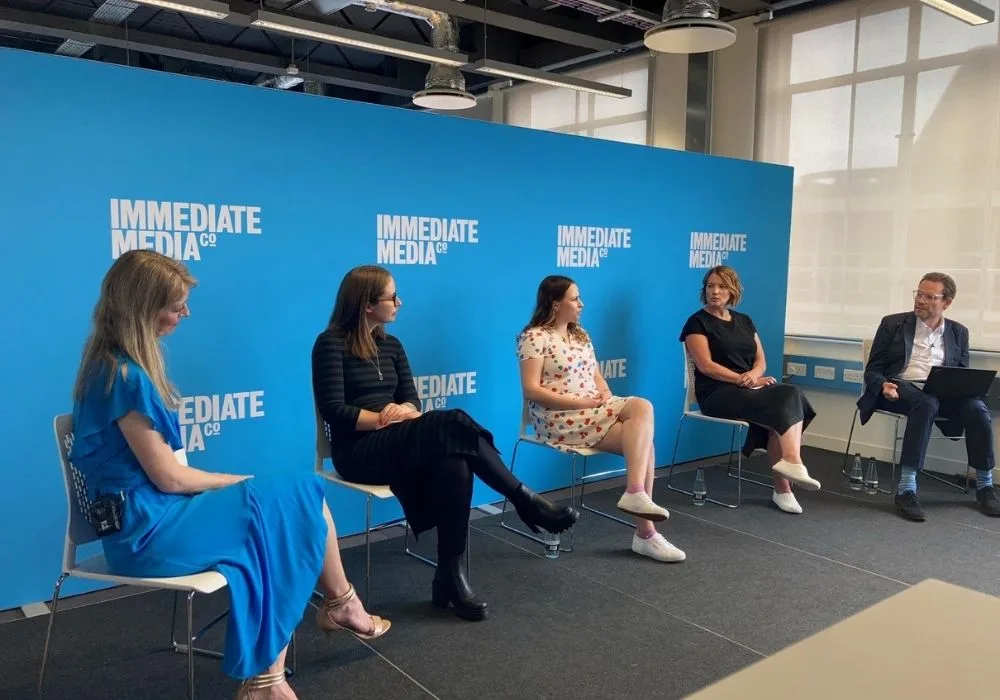Immediate Media’s Advertising arm recently held an event discussing ‘Identity in a post-cookie world’. The first part of the event, hosted by NDA Editor Justin Pearse, brought together representatives from Google Ads, Mantis, ID5, and Permutive, which all offer solutions for the post-cookie future.
Google may have recently decided to delay the deprecation of third-party cookies in its Chrome browser, but that doesn’t mean the industry can just stop thinking about it for now, despite now having a few more years in the bank. Even with Chrome cookies still about, the thinking around the industry has already completely changed when it comes to data privacy and identity.
“Privacy is very much a journey that we now all need to be on… While all this change seems overwhelming and challenging for lots of people in our industry, I think there is a big opportunity for businesses to lean in early, where new technology standards can really progress and develop through industry collaboration,” said Claire Norburn, Ads Privacy Lead, UKI at Google, who had the pleasure of being the first Google representative to appear at an event after Google’s ‘cookie deprecation delay’ announcement.
Emily Britton, Head of Publisher Development at Mantis, agreed about the need for people across the industry to come together and work on building a better future.
“There’s almost a need to step back before we look to collaborate and look at the different options, technologies, and methodologies coming out,” said Britton. “It’s important for everybody along the whole supply chain to be involved in this conversation. And there are a lot of things that are happening that are helping us to get to defined standards.”
“There are working groups that are happening with the IAB, for instance. And, when I’ve been in those groups – where it’s been publishers, ad tech vendors, agencies, and advertisers – that’s where we’re getting the best results. I think the most success comes from when everyone has a really strong understanding of how this works.”
Norburn was clear to point out that the decision to delay the removal of third-party cookies was made by the Chrome team..
Nonetheless, Google’s Ads team supports the decision because it “helps to ensure that the ecosystem can support all businesses through those privacy-preserving technologies,” according to Norburn.
“We think it’s more valuable to spend time and incorporate those new privacy APIs into our ads and measurement offering, while still having those third-party cookies remaining in existing features,” she said.
For ID5’s Chief Strategy Officer, Joanna Burton, Google’s decision to put the deprecation of third-party cookies on hold isn’t an entirely positive one, despite agreeing that it will give the industry more time to figure things out.
“Google is in the hot seat because they were planning to deprecate third-party cookies in January next year, but that has been delayed,” said Burton. “The reason there is so much worry about that is because companies have prepared and got themselves ready to deal with a world with no third-party cookies and no user IDs.
“The reality is that Google owns the browser with the biggest market share. There are already other browsers, with less significant market share, that have made similar moves in the name of privacy – but not actually to do with privacy, because they enable fully targetable advertising in their own walled gardens. So, Google is in the hot seat because it’s the latest and it’s the biggest. That’s why there are Competition and Markets Authority implications for Google,” she continued.
“Agencies, publishers, and brands should all be making the most of the opportunity to practice in Firefox and Safari now, so that you have the learnings ahead of when the big change comes from the biggest browser.”
Burton’s suggestion that there’s now an opportunity for the industry to use this extra time to learn is, however, supported by Permutive’s Head of Advertising Strategy, Elizabeth Brennan.
“I would implore people to start testing and learning now. If you’re not testing and learning new ways of working, it’s essential to do that. The delay from Chrome only speaks to the complexity of the issue at hand and the complexity of the new world that we will be entering. It’s imperative that a business understands how much first-party data that they have and where it sits in their business,” said Brennan. “What are the structural bottlenecks? What are the technologies that they need to unlock that? When they do activate first-party data, what’s the scale of that? How can they test infrastructure partners to scale their first-party data?
“Publishers have a phenomenal wealth of data on their sites. It will be incredibly important that advertisers can access that for media activation… It’s about laying out a testing roadmap and understanding who the players are.”









